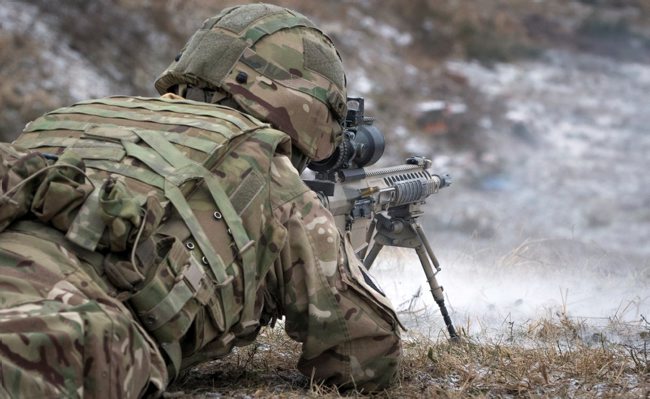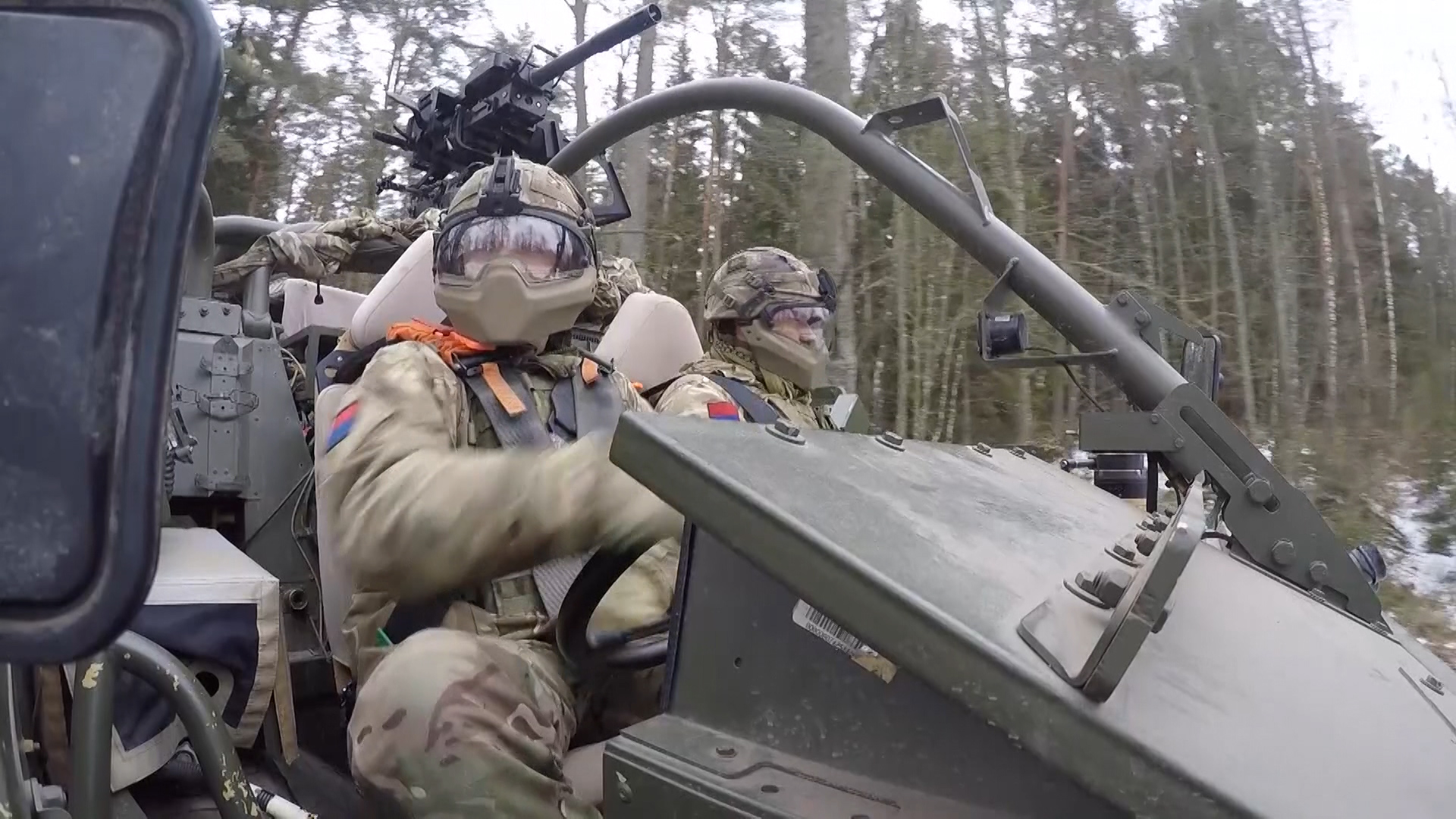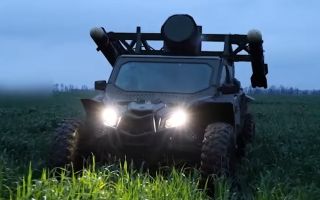
Warnings Of 'Hybrid Warfare' Threats For UK Troops In Poland

Cover picture: Ministry of Defence
The threat of hybrid warfare is "very much alive" for British troops deployed to deter potential Russian aggression, an Army officer has said.
More than 150 British personnel from 1st The Queen's Dragoon Guards (QDG), The Welsh Cavalry, have been based at the Bemowo Piskie camp in Poland since early April.
The light cavalry regiment currently forms part of the US-led enhanced Forward Presence (eFP) battlegroup in the country, and is half-way through a six-month deployment.
Major Ben Parkyn, the officer commanding C Squadron of 1st the QDG said the issue of a hybrid warfare threat is "very much alive" in Poland:
"We know that we are being observed here, and we have had a couple of instances of that kind of activity.
"(This has been) both on the electromagnetic spectrum, but also physically - so it is very much alive in the guys' minds."
Hybrid warfare typically refers to the use and mixture of conventional military tactics, alongside tools including propaganda, election interference, disinformation, hacking and cyber attacks.
The aim is to cause confusion and chaos, and even create divisions.

His comments come as the new head of the Army used his first public speech last week to warn how it is misplaced to think there is no imminent and existential threat to the UK.
Maj Parkyn also highlighted how there has been a situation where a drone has been flown above a military camp in another country in the region:
"It might not be nefarious, but it is still not a great thing to happen. It is a threat that we are certainly rehearsing for.
"The whole point about hybrid warfare is that it exploits the grey space, and a lot of the grey space is in the weaknesses inherent within our own structures.
"At what point does a local policing problem become my problem? That isn't clear and nor will it be.
"That is the bit we are rehearsing for, because to be frank, going to war is easy, it is binary. So, it is the bit before that we are most interested in, as are our adversaries."
The area and camp in Bemowo Piskie in north-eastern Poland is where the American-led eFP battlegroup is based.
Established by NATO to deter potential aggression from the Kremlin, the eFP is a deployment of defensive, but combat-capable forces across the Baltic States and Poland:
The camp is in the corridor of land between Poland and Lithuania, called the Suwalki Gap, book-ended by the Russian enclave of Kaliningrad, and Belarus, an ally of Vladimir Putin's Moscow.
At the Warsaw Summit in July 2016, the creation of the ePF was decided upon amid concerns about Russian activity after its annexation of Crimea from Ukraine in 2014.
Calling the Suwalki Gap "strategically vital" and "immensely important", Maj Parkyn said: "If the Baltic States were under threat, then this is the only way in.
"We very much believe that we are not only at the cutting-edge of the UK's commitment to NATO, but the cutting-edge of NATO."
Maj Parkyn said the soldiers deployed to Poland are aware of why they are there, adding: "They get it, the deterrence, the ability to defend and reassure."
He said the deployment is "relatively unique" as it is not a full operational tour where soldiers are overtly in harm's way, or the Cold War where personnel would be stationed with their family, or even a six-month exercise abroad:
"(But) there is an active threat here, I have experienced it and we have experienced it.
"We get the threat bit because of the active measures that are being taken against us at the moment, but the rest of it is our own grey area that the adversaries would look to put us in."









